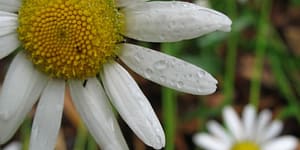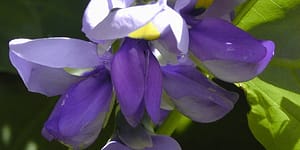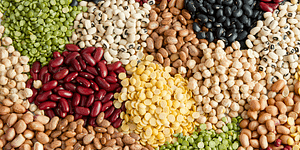Who Is the Wild Twin?

All of us have a wild twin––a part of ourselves that we generally shun or ignore to conform to societal norms. Inviting the wild twin back into our consciousness is crucial, for they have something important to tell us.
The following is an excerpt from Courting the Wild Twin by Martin Shaw. It has been adapted for the web.
Prefer Audio?
Listen to the following excerpt from the audiobook of Courting the Wild Twin. It has been adapted for the web.
Who is the wild twin?
I first caught the perfume of my wild twin by walking with muddy boots through wet grasses to my scrubby woodland den as a six-year-old. As the trees swirled I caught a scent and started to cry without understanding. I wove a pheasant feather in my hair. I hear it now in the owl court who hoot across the frost grass and moon-touched lawns of my cottage. There’s more than book smarts in that chill delirium. These are not domestic tones, not corralled sounds, but loose as Dartmoor ponies on the hill. They give me ecstasy. Not safety, not contentment, certainly not ease, not peace, but ecstasy. It’s almost painful. Makes me restless.
I also felt the wild twin when I lost the girl I loved the most. I felt it when attending the sickness of another. I felt it when exhausted, heart-sore, bewildered and despairing. I felt it when I attended to the sorrows of life in all their radical, unruly agency.
The wild twin is not unique to me; you have one, everyone has one. That’s the message from the old stories. That the day you were born, a twin was thrown out the window, sent into exile. That it wanders the woods and the prairies and the cities, lonely in its whole body for you. It rooms in abandoned houses in South Chicago. Someone saw her once on a Dorset beach in winter. They are always asking after you.
It lives in the feeling when the ruddy mud of the Nile squeezes between your toes, when moonlight slips from the mouth of a heron, when you play cards with a delightful villain. It’s going to push you towards ruin on occasion, and has a lot of generosity towards kids. It will hide your laptop and send a thousand wild geese processing over your tent on an October dusk. The wild twin is the vintner of the blood-wine of your many private battles, and sells it in highly prized bottles to remote Armenian queens.
It is incorrigible, melodramatic, and has only your best interests at heart.
Know your twin and you will become distracted by fiery angels languishing round the water cooler, you will beat your palms to drums no one else can hear and subtle ideas will fly from you. At least that’s what I hear. The wild twin doesn’t fetishise surety, embezzle guarantees or even really believe they exist. It hides chocolate in the pockets of your scruffy-haired nephews and whispers forgiveness as it walks through the gardens we have neglected to tend. It hands us a spade.
I believe that in the labour of becoming a human, you have to earnestly search this character out, as it has something crucial for you with it. It has your life’s purpose tucked up in its pocket. If there was something you were here to do in these few, brief years, you can be sure that the wild twin is holding the key.
Wildness attracts everybody but appears to be in short supply. Not feral, not hooligan, not brawling, but the regal wild. The sophisticated wild. So you should be gathering by now that this book is about locating your long-abandoned twin and courting it home. We’re going to use two old fairy tales to do it. And note the word court.
This is a protracted affair, this locating, with the possibility of many missteps, bruised shins and hissed exchanges. Though they long for you, the twin may not broker relationship easily if you’ve been separated for many years; she wants to know you’re serious. We’ll cover the complexity of such a reunion as we go. They want to give you a bang on the ear and a kiss on the lips all at the same time.
Lorca claims that the goblin of trouble, duende, is this thing that evokes such a twin. Duende is knowledge that this all ends, that our wings have rusty blades
attached that scrape the dusty limits of the dirt. I wrote a moment ago that the perfume of the wild twin provided me not with a sense of safety but with one of restlessness.
The world pushes you into poetry by withdrawing something, not giving it. The greatest poems are not written by the woman who got that last kiss; they are written by the woman who didn’t. And in that absence, that heart-sore knowledge, dwells the duende. The grit, the limp, the slap, the pushback. We begin to understand why polite society has exiled the wild twin.
But the cost of its absence is so terribly high. We exist in its consequence.
No twin, and we, as Robert Bly used to say, preserve life but don’t give life. There’s not the holy rashness that invokes the spiritual energies of the universe. The wild twin rolls the dice a little. Without eros, without risk, there’s no culture worth making. So this is a dangerous business, calling out to these brooding, exiled energies. But truth be told and nailed to the tavern wall, it’s far, far more dangerous not to.
I’m not sure we ever really, properly, catch up with our wild twin, buy matching sweaters. The pursuit is the thing, the glimpse is the thing, the jolt of their quixotic nature may be barometer enough for one lifetime. But never to search? Well, that’s missing out on life altogether.
Recommended Reads
Recent Articles
Oxeye daisies are one of the most important plants for pollinators including beetles, ants, and moths that use oxeye daisies as a source of pollen and nectar. Instead of thinking about removing a plant like oxeye daisy, consider how you can improve the fertility and diversity of habitat resources in your home landscape, garden, or…
Read MoreThis long-lived perennial legume is used for forage and erosion control. Kudzu is edible with many medicinal uses and other applications. Pollinators of all kinds love its prodigious lavender blooms!
Read MoreMove aside, maple! We have two new syrups to add to the table. Read on for insights on tapping, selling, and eating syrup from walnut & birch trees.
Read MoreWhy is modern wheat making us sick? That’s the question posed by author Eli Rogosa in Restoring Heritage Grains. Wheat is the most widely grown crop on our planet, yet industrial breeders have transformed this ancient staff of life into a commodity of yield and profit—witness the increase in gluten intolerance and ‘wheat belly’. Modern…
Read MoreDid you ever wonder how leeks, kale, asparagus, beans, squash, and corn have ended up on our plates? Well, so did Adam Alexander, otherwise known as The Seed Detective. The following is an excerpt from the The Seed Detective by Adam Alexander. It has been adapted for the web. My Seed-Detective Mission Crammed into two…
Read More










